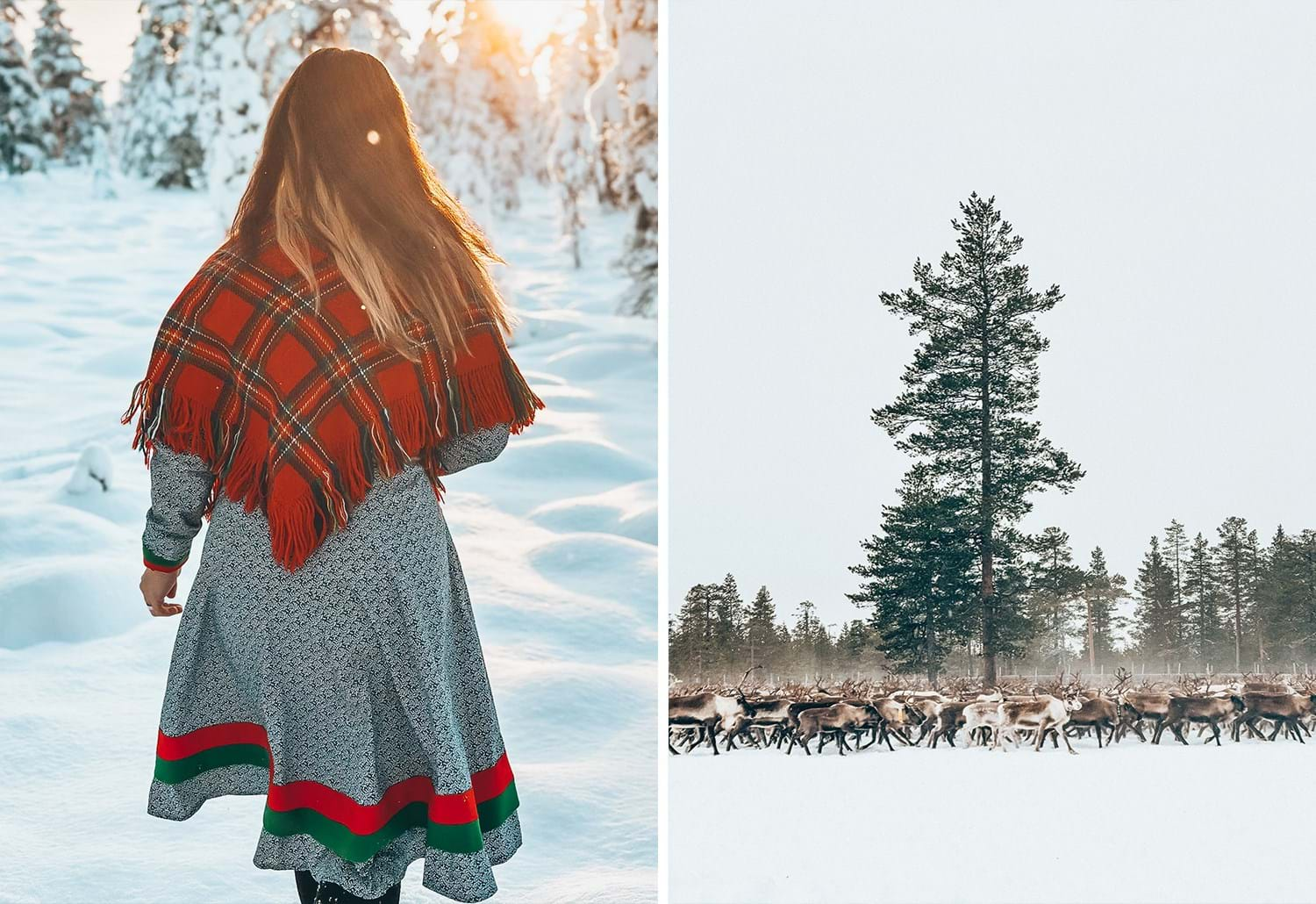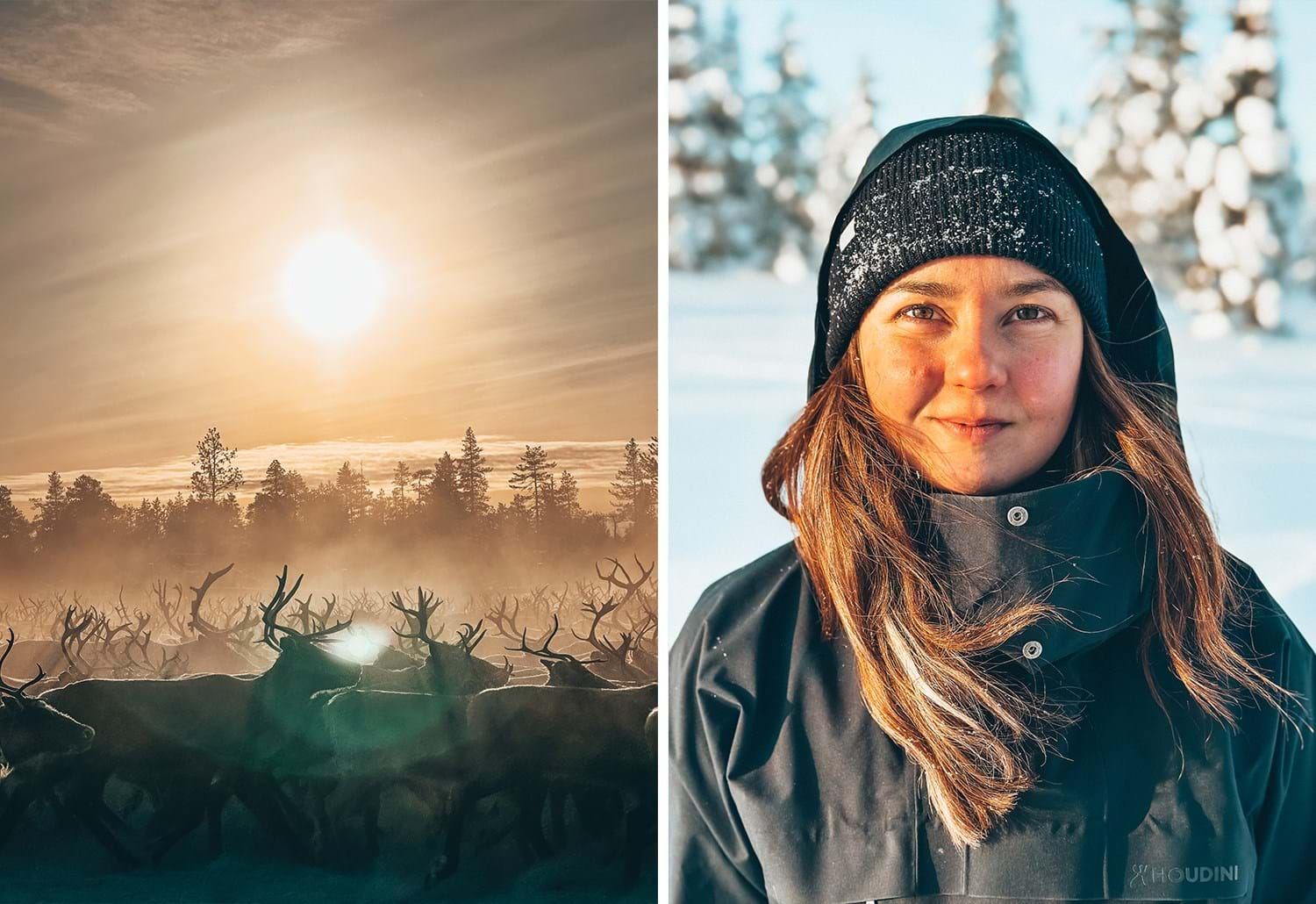Feb 6, 2023
Celebrating Sámi National Day through the eyes of Tova-Liza, Houdini Friend & Sami
”Lahkoe saemiej åålmegebiejjine" – Southern Sámi for ‘congratulations on Sámi National Day’.
Today we celebrate Sámi National Day, in memory of the very first Sámi conference that established our independence 106 years ago.
The relationship between nature, the reindeer and myself is hard to put into words. All three of us are dependent on one another and we vowed to take care of one another for eternity. Living side by side on nature’s terms for thousands of years, we Sámi have developed a lifestyle that’s rooted in tradition and regeneration. Nature isn’t disposable to us – it’s the foundation of our entire existence and our relationship with it is sacred.

Centuries ago, when we first came across reindeer, we learned how to live alongside them in harmony. They taught us the secret to living in Arctic conditions; constantly being on the move. They’ve influenced our lives as a nomadic peoples and we feel a responsibility towards them that’s greater than any other: It is thanks to them that we’ve been able to live and survive all this time. Their meat becomes our food, their skin becomes our clothes. Their tendons are turned into sewing thread, horns are turned into tools, and their hooves can both be eaten as well as be made into glue. Rather than greed or exploitation, our relationship with them is built on respect and gratitude. We treat our environment with the same level of care as without it, nor reindeer, nor Sámi, nor any of us, could survive.
The sun is our father, and our lands are our mother.
As Sámi, we live among the same wetlands, slopes and cold springs as our ancestors. We greet them when we walk the hills, when we drink our water – they live on eternally in our surroundings.
Living in synch with our environment, we get to know nature up close and personal: We know where we can safely cross the thin ice of spring and we know where the beauty of fresh snowfall can be deceiving, hiding dangers that are to be avoided. I will always be grateful for growing up in a culture where knowledge and skills are considered more valuable than what you own and use.
Whether it’s because we consider nature to be sacred or simply because we’re dependent on it, we see it as our responsibility to care for our environment and protect it. All over the world, Indigenous People stand at the frontlines to save our lands from exploitation, because our existence depends on it. And yours does too.
The lands Indigenous Peoples live on stand for 80% of the world’s biodiversity. All of humanity is dependent on the knowledge Indigenous People hold, the systems we’ve built and the balance our way of life sustains. Getting us involved in the decision-making process when it comes to extracting natural resources from our lands should be a given – and securing it should be one of our highest priorities collectively.
Sámi are the last Indigenous Peoples of Europe and Sweden, and we’re recognized under Swedish law since 2011. However, Sweden is currently in violation of Sámi rights in various ways, which it’s being strongly criticized for by the UN. By taking Indigenous People’s rights into consideration in all policy-forming that affects the Sámi, Sweden can avoid breaching their international human rights commitments and help enable a healthy and bright future for us all. “

In this light, what does this day mean to me?
“Sometimes it just washes over me. When I’m in the car, on my way home from the fields, or when I close my laptop after filing yet another appeal: The feeling that we’re losing. Losing our lands, losing our rights, and losing our future. In these moments, I can’t help but wonder: Will I be the last?
The question twists itself around my heart and it gets harder to breathe. I try to suppress it, but for some reason it stings a little extra today. To not lose my grip, I force myself to think of two things, two things I can never lose. My history and my Sámi spirit.
My people possess fantastic strengths and qualities that have allowed us to still be here today, despite a thousand years of discrimination. Did you now, that Sámi were almost completely self-governed in 1500? From then on, until the mid-20th century, we’ve been on the brink of extinction. Only a few decades ago, we had the least amount of control over our own lands - our home - than in our entire history. As a young Sámi woman, whose parents lived through that time, how do you even start trying to comprehend that?
On the 6th of February 1917, a Sámi woman born in Tärnaby, called for the first ever Sámi conference, gathering people living in Sápmi (which spreads across Norway, Sweden, Finland and Russia) for the first time in history. She wrote:
“Sadly, though, the life of a Same isn’t one of leisurely pastime, but a life filled with toils, dangers and adversities.”
Elsa Laula lived in a time where our existence was at its most fragile. She demanded we unite behind our common cause: Our fight for our rights.
Maybe she saw how it would end if we didn’t. Maybe she too experienced this feeling of suffocation.
Just like Elsa Laula’s, I feel my life is a fight. Some days, it feels like there can’t even be just one generation that can let go and breathe easy without us losing everything. We call it ČSV, or “čájet sámi vuoiŋŋa”. It’s a North Sámi term that was coined to express and symbolize our activism and struggle, and means ‘show Sami spirit’.
We stand here today, 106 years after that first Sámi meeting was held in Tråante, to celebrate Sámi National Day. My people have been to hell and back, we reached shore just before the ice gave way beneath our feet. Now we march on, setting one foot in front of the other.
Tova-Liza Kennethsdotter Willenfeldt
Brändåsen
Houdini Sportswear. All rights reserved.